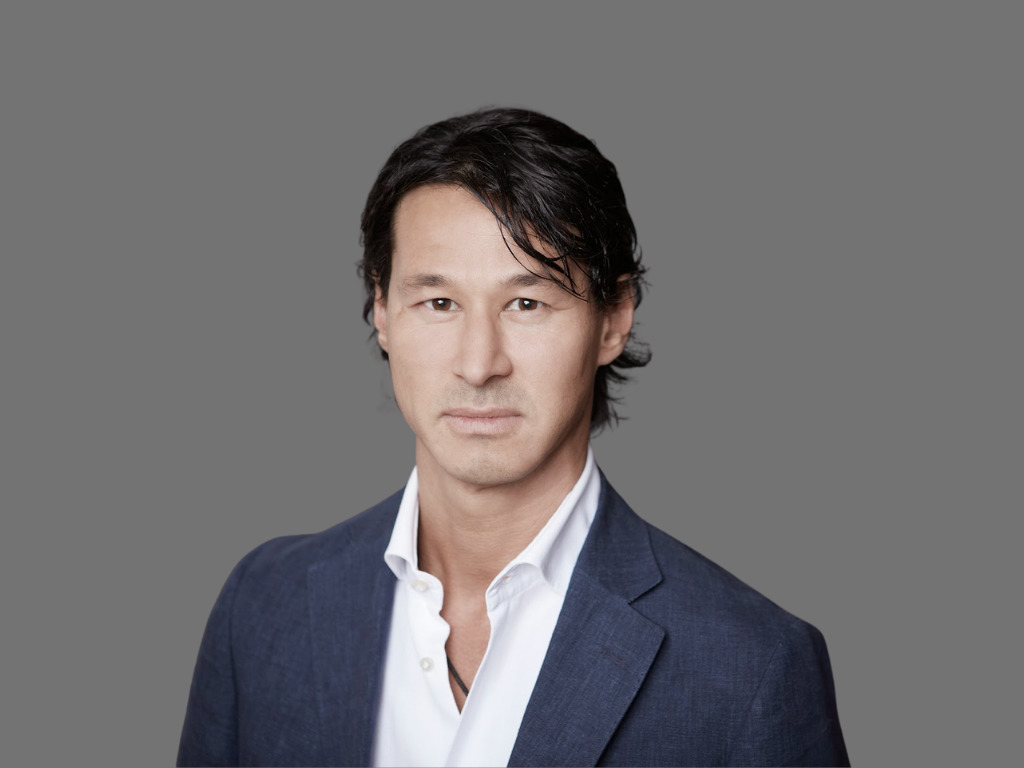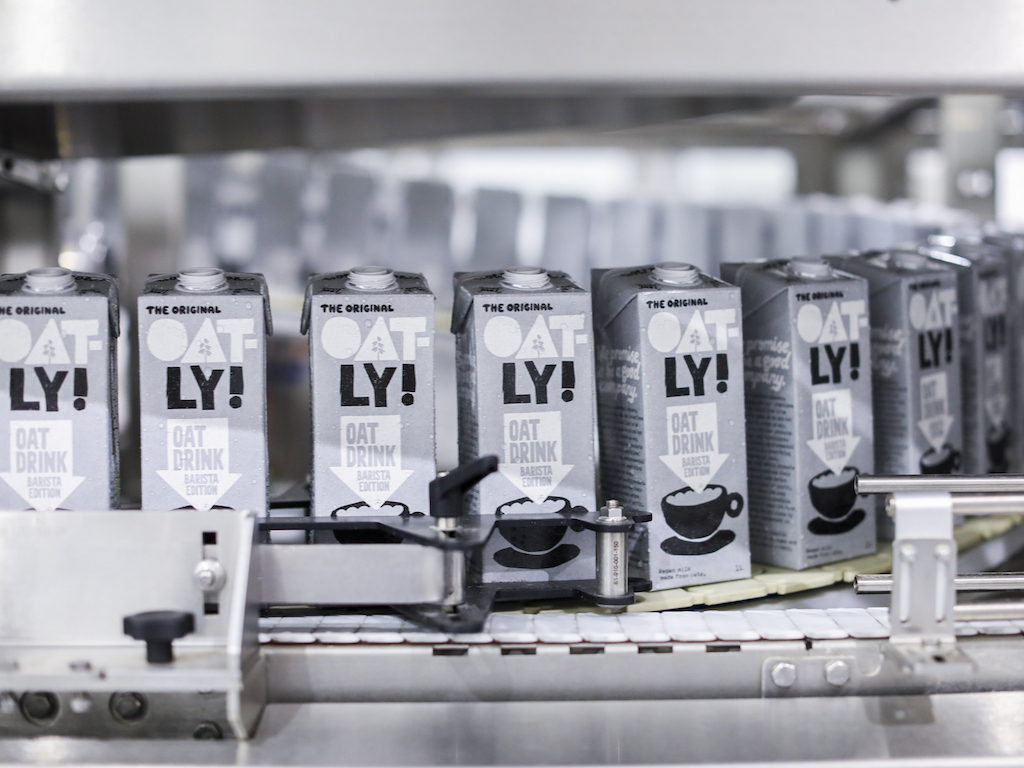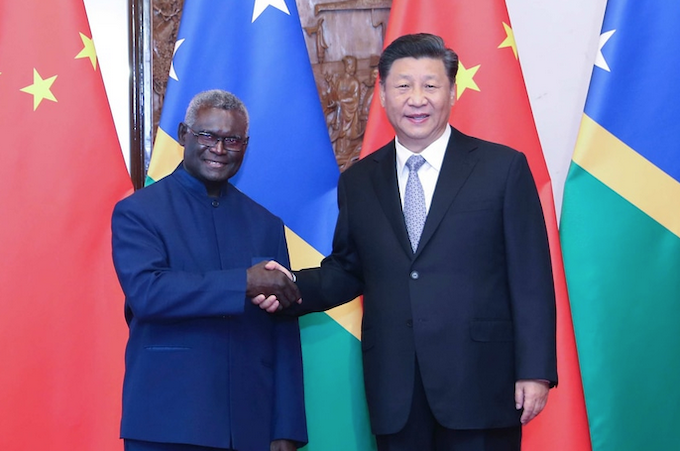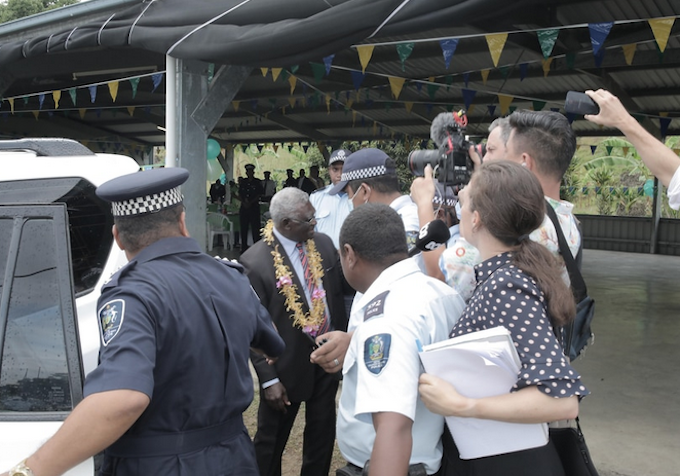Many observers believe the future will be written in the Sino-Pacific region and, in particular, the means by which the United States responds to the rise of China as a global economic and political power. That’s clearly the the message in President Biden’s national security policy which states that “China…is the only competitor potentially capable of combining economic, diplomatic, military and technological power to mount a sustained challenge to a stable and open international order.”
What follows are thumbnail sketches of U.S. foreign policy in Japan, South Korea, Taiwan and the Philippines in the immediate post World War II period and what that might portend for the U.S. – China geopolitical rivalry. In each case, over a relatively brief period, land tenure changes were either carried out or promised in order to prevent rural grievances from spreading to radical demands for wholesale redistribution of wealth and political power. I’m suggesting that the methods by which the rural sector was brought into the political systems in the “Four Island Chain” went a considerable distance in determining the future direction of the political systems in these four countries off the mainland of China. Now the question is what might these regional allies do in the future?
The Politics of Land Reform
Back in 1968, American political scientist and U.S. foreign policy advisor Samual Huntington argued that “He who controls the countryside controls the country” and further, if the countryside is in opposition to the government and the system, both are “in danger of overthrow.” Going further, Huntington asserted that because peasants are primarily concerned with their immediate material and economic needs, certain controlled reforms may be used as a substitute for revolution. He hypothesized that the likelihood of a revolution is negligible if land ownership is seen as equitable. By administering a private property inoculation, the peasant will be immunized against various leftist strains of revolutionary fever. Certain forms of land tenure change will encourage possessiveness and individual betterment through the existing system. In short, the rural sector will become a conservative force in politics.
Examples of manipulative land tenure policy can be traced back to Ancient Greece in 584 B.C. and Rome in 133 B.C and up to the program attempted by Peter Stolypin prior to the Russian Revolution. Russian peasants had revolted against the tsar in 1902 and on a larger scale in 1905 when a thousand manorial houses were torched by the peasantry. Attacks against the nobility occurred in 47 provinces as peasants sought to obtain land. Stolypin, one of tsar’s ministers, was charged with forming a counter revolutionary strategy in the form of a land reform bill introduced in 1906 and 1911. He reasoned that the answer was “individual ownership of land is the pledge of order because the small proprietor is in himself that nucleus on which is based a stable order in the state… an independent, wealthy settler would arise, a firm representative of the land. Such a type has already grown up in the western provinces and he is particularly desirable now.”
To accomplish this, Stolypin proposed the dissolution of the mir, the basic peasant commune, in order to create a new kulak class of prosperous peasants. In 1910, he predicted that if given a decade to carry out his program of “wagering on the strong,” Russia would be “unrecognizable.”
Social tensions would be reduced… A new stratum of small land-owners will be stabilized and it will disrupt the traditional collective cohesion of the rural world. The most intelligent members of this world will be encouraged to improve themselves. In a word, a protective ring of individualist small proprietors will be encouraged who have nothing in common with the landless mass and will keep them at bay.
Lenin was, in fact, alarmed by Stolpin’s political calculations, fearing that if they succeeded, the peasantry would be eliminated as a base of support because they could become capitalistic. For Lenin, the sole question was whether change in the rural order would be realized by the landlord class, the tsar and Stolypin or by the peasant masses led by the proletariat. Referring to the Stolypin reforms, Lenin said, “I do not expect to live to see the revolution.”
Owing to a number of factors, not the least of which were Stolypin’s assassination and rapidly spiraling social chaos, the reform failed to prevent revolution in Russia. Who knows? Had Stolypin’s reforms created a class of conservative proprietors would the Russian revolution have occurred?
Bearing the foregoing in mind, during a relatively short period following World War II, the United States was in a position to exercise broad control of land tenure change in Japan, South Korea, Taiwan and the Philippines. In the cases to follow, bourgeois reforms or ones promised by U.S. authorities had the effect of forming and then furthering socioeconomic conditions favoring elites loyal to the United States and the creation of thoroughly servile client states.
Land Reform in Japan
Land reform in Japan after World War II inured Japanese peasants to the appeals of socialism and made them the strongest and most loyal supporters of conservative parties.
— Samuel P. Huntington,
Keeping the Americans Happy Has Been the Ultimate policy Goal Throughout the Postwar Era.
— Saul Jihad Takahasi
The late Shinzo Abe, former Prime Minister of Japan, was Washington’s choice to head the government. A neoliberal, ultra-rightest, Abe opposed any softening of relations with China. He was part of the political dynasty that made Japan a vassal of the United States under the Liberal Party that ruled Japan for all but four years since the end of World War II. Like all his Liberal Party predecessors, fealty to the US was Abe’s single, most characteristic quality while in office. Tellingly, in late July, 2022, Japan released its annual defense White Paper in which Tokyo announced its intent to drastically ramp up defense spending “within the next five years” in response to escalating “security concerns,” IOW, China. Also, for the first time, the White Paper mentioned Taiwan.
With the occupation of Japan following WWII, U.S. General Douglas MacArthur, possessed virtually dictatorial power over the country’s future even to the point of writing the country’s new ruling document known informally as ‘MacArthur’s Constitution.” Much has been written about this period, including all the patronizing political tutelage involved in setting up an American-style, procedural democracy. However, this was in service to two other objectives: Preventing Japan from “going communist” and cementing the country into an alliance against the Soviet Union. Toward that end, after compelling Japan to turn over their bases to American military forces after the war, MacArthur went on to create the National Police Force,which later morphed into the Japanese Ground Self Defense Forces (JGSDF).
Prior to the war, peasants made up over 50 percent of the population and they existed on less than an acre of land and paid half their rent in crops to landlords living in faraway urban areas. Fully aware of this situation, Washington had decided that protection of U.S. interests in the Pacific required fundamental changes in the rural tenancy system. This thinking culminated in a directive from General MacArthur that ordered the Imperial Japanese Government to “take measures to insure that those who till the soil shall have a more equal opportunity to enjoy the fruits of their labor.” Land reform specialists on MacArthur’s Tokyo staff believed that Japanese Communists were pressing for land reform and they strongly urged that if the Americans could carry one out it would undermine them. Wolf Ladejinsky, an Asia specialist and land reform expert, argued by analogy that “…some of us were familiar with the role of the peasantry in insuring the victory of Soviet communism and were much concerned with the role of Japanese Communism in Japan.” After considerable obfuscation and delay, a proposal passed the Diet on October 21, 1946 and within a few years, 90 percent of all tenanted land was transferred into owner-operated land.
In the urban centers, the Sabetsu, the radical trade union movement, had organized over 100 strikes since its founding in 1946 and had planned a general strike for February 1, 1947 in which 4.4 million workers were expected to participate. Gen. MacArthur blocked the strike saying “I will not permit use of so deadly a social weapon…” Union officials were purged in the Red Purge of 1950 and labor activists were fired from their jobs. The Sabetsu was emasculated as membership dropped to 13,000.
In the rural sector, one million landlords were dispossessed of their estates but instead of being expropriated, they were compensated for their land. MacArthur and his inner circle believed they were erecting a formidable barrier against leftist influence in rural areas, that had, in Ladejinsky’s words, “cut the political ground from underneath the feet of the communists in the Japanese countryside…” The reforms would sustain Liberal Democratic Party (LDP) conservative governments in Japan, without interruption, well into the 1970’s. In effect, an urban elite and their political apparatus replaced the former landlord class under this tightly controlled, “change from above” operation. Indeed, Yamaguchi Takehide, the leader of the farmers’ union, observed that upon hearing the news about the land reform, said, “I thought ‘damn,’ if they had not done that we should have a revolutionary government in Tokyo in a few years.” The effect of the land reform was to freeze existing egalitarian and democratizing tendencies in Japanese society in terms of additional rural influence. The political system was doctored to give the now conservative rural areas more influence than in urban electoral districts. In short, a capitalist economy was bolstered as was a political system friendly to U.S. interests in Asia.
In 1951, John Foster Dulles was to ask “Do we get the right to station as many troops as we want and for as long as we want? That is the question.” As Gavan McCormack notes, “The answer then and the answer now, was yes.” Under the Treaty of San Francisco of 1951, national sovereignty was bestowed upon Japan but Okinawa was formally ceded to the US, becoming, in effect a military colony, “The Keystone of the Pacific.” In 1972, Okinawa reverted back to Japan but again, a large US military presence was allowed to remain.
Japan’s ruling elites have faithfully facilitated all the Pentagon’s efforts to surround and constrain China and Tokyo has been fully incorporated into Washington’s effort to maintain global hegemony. A trade-off occurred by which “Japan became rich by swallowing its pride, forgetting about national glory and even national identity and prestige during the decades of the Cold War, concentrating on producing goods of high quality, cheaply, for world markets. It surrendered control over defense and foreign policy to the US in return for the right to protect its nascent industries, and for the privileged access to technology, capital and markets within the ‘Free World.”
One brief exception to LDP rule occurred in September, 2009, when a new, reform political party, the Democratic Party of Japan (DPJ) came to power after almost five decades of LDP one-party democracy. One of the DPJ’s first acts was an attempt to establish better relations with China and, for the first time, put Japanese long term interests ahead of U.S. interests. Then Vice-President of China, Xi Jinping, even visited Tokyo in January, 2010. However, as Dutch journalist and Japan expert Karel van Wolfren observed, Washington was beginning to pivot toward Asia and needed an “obedient outpost” close to the Chinese mainland and Japan’s behavior was seen as threatening. Powerful elements in the Defense and Foreign Affairs Departments conspired against the new Prime Minister Julio Hatoyama while the media disparaged and even ridiculed him. Hatoham’s popularity spired downward after he received unrelating pressure from the United States —and his own Foreign Ministry — and broke his popular campaign promise to close an American Air base on Okinawa. For his “misconduct,” Yukio Hatoyama was forced to step down on June 2, 2010. In the next election the DPJ was trounced and the LDP returned to power. That demarcated the end of more amicable relations with China.
Of the 800+ U.S. military bases around the globe, none are as vital as those in Japan. At present there are some 56,000 U.S. military personnel in Japan, the most in any country outside the United States and all four branches are represented. There are 39 U.S. military installations on the island and Kadena Air Base on Okinawa is the largest US Air Force base in the Pacific region.
Japan assumes 75 percent of the US basing costs under the euphemistic phrase “Host Nation Support,” omai-yuri, eaning kindness or compassion and also “sympathy budget.”
Can we expect an upturn in terms of U.S. military presence in Japan? The answer is “yes” and it will likely involve some or all of the following: air and missile defense ; ground-based, long-range fires with a range of 500 to 5,000 km.; moving naval combatants to Japan from existing bases in Guam, Hawaii and California; joint commands with the Japanese.
As early as the mid-1990’s, Washington was giving thought to a U.S.-led “mini-NATO” in Asia with Japan being a key player in an anti-China alliance. Obviously, closer Sino-Japan relations “would deal a death blow to US political and military influence in Asia.” Recently, confirming its client state status, Japan hinted that it would be eager to participate in NATO’s expansion to the Asia-Pacific region and the country attended a NATO summit meeting in Madrid, Spain in 2022. The aforementioned Zbigniew Brzezinski once divided the world into three types of nations: vassal, tributary and barbarian. Japan, Washington’s vassal in East Asia, “would be expedient to keep the ‘barbarians under control.”
American Military Government in South Korea
United States policy prohibits official recognition or utilization for political purposes of any so-called Korean provisional government or other political organization by United States
— Supreme Command Allied Powers, Summation, No 1.
South Korea is a client state with limited sovereignty, created by the United States to serve its interests.
— Tim Beal, “In the Line of Fire: The Korean Peninsula in U.S. – China Strategy,” Monthly Review, July 01, 2021.
In Korea, American Military Government (AMG) disembarked on September 8, 1945, to discover a de facto government in charge of the southern half of the bisected peninsula and had AMG’s appearance been delayed at all, they might well have confronted a virtual fait accompli. As it was, representatives of the Korean People’s Republic (KPR) greeted the American arrival at Inchon. Under the aegis of established, left-leaning local People’s Committees having their roots in decades of resistance to the Japanese, drastic steps were being taken against one of the most vicious tenancy systems in Asia. For a short one month, “inter occupation” period, People’s Committee’s acting on behalf of the umbrella KPR, began imprisoning landlords to wide approval from the tenants. The social vision of the organized left sought, through genuine land reform, to reapportion political, economic and social benefits in Korea.
Because the bulk of the popular, well-organized, underground was left-leaning, U.S. officials were convinced that if the North was lost to the Russians, every effort must be undertaken to salvage a portion of the country. In September, 1945, President Truman ordered all Korean efforts at establishing any self-government to cease. Even the defeated Japanese were considered more trustworthy than indigenous nationalists by the Americans and General MacArthur wired the surrendering Japanese commander in Korea to maintain order until the Americans could take control. The KPR was immensely popular but on December 12, General John Hodge outlawed it and the future course of Korean politics was sealed. The English speaking representatives of the wealthy class immediately came forward and received favorable treatment from the Americans.
From 1945 to 1949, the U.S. exercised full control and even enforced Japanese laws then in place. The U.S. planted a puppet military dictatorship under western-educated Syngman Rhee, who enjoyed no popular support whatsoever and proceeded to carry out widespread massacres of suspected leftists. William Blum, in his exceeding valuable book, Killing Hope, sums up Rhee’s regime as “… one in which landlords, collaborators, the wealthy, and other conservative elements readily found a home.” Rhee further established South Korea as Washington’s semi-colony. Rhee was was followed by Park Chung-hee, who, under martial law, continued Rhee’s repressive policies. When Park was assassinated in 1979, another strongman, General Chun Doo-hwan took in a military coup in May, 1980. He promptly set up a concentration camp for “puricatory education” and under his brutal rule, thousands of anti-government activists were murdered by the military and police. Chun remained in power until 1988. Suffice it to say that Washington supported the actions of its neo-colonial ally. Most important, during this period Seoul did not have to contend with rural unrest, confirming Huntington’s contention that “if the countryside supports the government, the system is secure against revolution…if the countryside is in opposition, both system and government are in danger of overthrow…He who controls the countryside controls the country.”
In 1945, most farmers owned no land and when North Korea carried out a massive land reform, AMG feared its effects in the South. It became demonstrably clear to AMG that the Korean Interim Legislative Assembly (KILA) created by the Americans in October 1946, was still not going to enact any land reforms. AMG dissolved the KILA in January 1947 and proceeded with a land sale of former Japanese holdings in 1948. Aware that widespread instability was on the horizon and a situation then underway on the Chinese mainland might ensue, anti-communist arguments clinched the decision for AMG.
One difference from the Japanese case is that in Korea there had been much less pre-occupation planning and decisions initially evolved out of the situation on the ground. It’s striking that with only general directives coming from from Washington, AMG officials on the ground employed tactics consistent with other cases: popular demands for land redistribution were suppressed until it could be managed from above and bled of its radical potential. Even then, only when massive political chaos detrimental to perceived U.S. interests appeared imminent did AMG (with Washington falling in line) take the initiative.
Finally, the U.S. could not risk eliminating the landlord class through confiscation (again, think the CCP on the mainland) or low rates of compensation for their property. There was never any doubt that the landed oligarchy would perform all the economic and political functions at the national level and become a “safe” ally in terms of U.S. interest in the Pacific. Paul G. Hoffman, Chief of the Korean Branch of the Economic Cooperation Administration reported in 1949 that “The land reform in Korea did more, probably, to fortify the democratic forces than any single move that was made by the American Military Government.” It should be added that in addition to distributing confiscated former Japanese land, AMG sold off “homes, businesses, industrial raw materials, and other valuable resources” and these valuable assets were purchased “by collaborators who had grown rich under the Japanese and other profiteers.”
Looked at another way, the methods employed by the U.S. insured that in ensuing decades of urban unrest and instability, the government — a right-wing police state — was not forced to contend with rural dissidence. Conservative land reform eliminated the issue upon which the left could obtain rural support. Calculated palliatives — really, social bribes —worked. And there is every reason to believe this would not have occurred had it not been externally induced.
According to The New York Times (August 3, 2022), a record high 80 percent of the South Korean population hold negatives views of China, even replacing Japan, the country’s former colonial rulers. In polling, the public favors the U.S. over China by a six to one margin and over 58 percent consider China “close to evil.” At the same time, South Korea’s trade with China is as big as its trade with Japan, the United States and the EU.
Camp Humphreys in South Korea is the largest U.S. overseas installation in the world. And as in Japan, the South Korean government picks up the tab for maintaining the base. The U.S. occupies 65,000 acres of Korean land on 96 bases and has 28,000 troops stationed in South Korea. President Yoon Suk-Yoel was the first South Korean leader to attend a NATO summit meeting, this time in Madrid, Spain.
The U.S. and Taiwan
“I am convinced that China could have been saved from Communism.”
— US. official Paul Hoffman on Chiang Kai-Shek’s missed golden opportunity
In terms of the overall and seemingly endless pursuit of full spectrum dominance by Washington, the separation of Taiwan from the mainland certainly exists as a part of contingencies to achieve that end.
— Ron Jacobs, ”Nancy Does Taiwan While General Flynn Cleans His Guns,” Counterpunch, August 8, 2022.
In the 1940s, China was in the throes of a massive social revolution. In the latter phases, Mao excluded “peaceful land reform” and between 800,000 and 3 million “rural class enemies” were purged, most by the tenants they’d been exploiting. The remainder fled to Taiwan but before doing so, many collaborated with the Kuomintang in a failed effort at regaining their land.
The late William Blum, a former U.S. State Department official and later a fierce critic of U.S. imperialism, noted that the Office of Strategic Services (OSS, forerunner to the CIA) knew that the corrupt, decadent Chiang Kai-shek regime on the mainland had more interest in fighting the Communists than the Japanese. Further, his circle was “full of officers who had collaborated with the Japanese and even served in their puppet government.” No matter. The Generalissimo was first and foremost an anti-communist. By 1949, the U.S. had given $1 billion worth of military aid —and $2 billion in cash —to the Nationalists. [18] On March 14, 1949, the CIA was already urging that support for Taiwan could “enhance the will to fight communism in Japan, in Korea, in the Philippines and throughout the Far East.” In 1950, General MacArthur was referring to Taiwan as an “unsinkable aircraft carrier and submarine tender.”
U.S. advisers had become involved in land reform on the mainland. President Truman had actually told Generalissimo Chiang Kai-Shek to initiate changes in agriculture and the Sino-American Joint Commission on Rural Reconstruction (JCRR) came into being in Nanking in October 1948. Composed of two Americans and three Chinese, all five members were convinced that without immediate land tenure changes, the position of the Nationalists was precarious.
A few pilot programs in rent reduction were attempted in two provinces and it’s believed that Chiang was even willing to endanger his landlord base by extending these efforts. However, this change of heart came far too late. It’s impossible to know if this might have worked and it begs questions about the enormous rural support for the Chinese Communists. It does, however, highlight the instrumental value of carefully circumscribed land tenure changes ascribed by U.S. officials.. Even as late as 1964, the U.S. Agency for International Development (AID) concluded that land reform could have stolen the Communist thunder in the 1940s because their victory was “largely rooted in the despair of the Chinese peasantry.” In any event, after fleeing to Taiwan, neither Chiang nor the U.S. government was willing to once again risk losing the rural population.
Here it’s important to note that nothing approaching area-wide government existed on Taiwan. After the 1895 Treat of Shimonoseki ended the first Sino-Japanese War (1894-1895), the island was ceded by China to Japan “in perpetuity,” and not until 1945 was it retroceded to China. During that long period, the Japanese Colonial Administration viewed the island as a source of agricultural exports. Many local Taiwanese landlords collaborated with the Japanese in governing large segments of the countryside.
At least two-thirds of the peasantry were farm laborers or tenants with some of the latter paying 70 percent of their harvest in rent. Taiwanese who resisted were killed by the thousands and Taiwanese men were encouraged to join the Imperial Japanese army. Two hundred thousand volunteered or were conscripted. In addition, some two thousand Taiwanese women, mostly Indigenous and Han Chinese, were coerced into sexual slavery for the Japanese military. It should be noted that the imperialist Japanese considered the Taiwanese indigenous people “wild savages” to be eradicated if they resisted assimilation.
Given this history, the first advance units of the fleeing Nationalist Army arriving on Taiwan were welcomed as liberators from the hated Japanese colonists. Had the native population been given the opportunity it’s not unreasonable to assume they have opted for Chinese rule. However, this enthusiasm was quickly dampened as the mainlanders treated them more like occupied people than sisters and brothers. U.S officials rightly feared a native uprising and, in fact, a massive demonstration occurred on February 27, 1947. That same evening, 50,000 troops, an advance unit from the Nationalist Army, arrived from the mainland and over a month-long period, 28,000 Taiwanese activists were executed. The fascist Chiang Kai-shek and his Kuomintang (Nationalist Party) moved to the island on December 6, 1949. He imposed martial law and and 2 million supporters crossed the strait, including politicians, business owners and other members of the military. A one-party state was embraced by the United States even as it carried out the “White Terror” during which 140,000 Taiwanese were imprisoned and 4,000 intellectuals and anyone suspected of leftist sympathies were summarily executed. Blum aptly sums up this era thusly: “…the situation was not that Taiwan belonged to China, but that Taiwan (italics) was China. And so it was called”.
After the Korean War, still wary of peasant unrest, the JCRR simultaneously began to take measures in the countryside but these were in stark contrast to those on the mainland. For example, large private owners were forced to sell their land to the government for redistribution and by 1959, 85.6 percent of native farmers became owner-cultivators. U.S. advisers were deeply involved and Washington’s financial aid was substantial. Rather than meeting the terminal fate of their mainland counterparts, the divested landlords were compensated with stock in the government’s four largest corporations, making it a capital transfer not the redistribution of wealth, power and influence that happened under the CCP on the mainland.
In the process, the KMT claimed credit, the peasants were co-opted and neutralized as a force for radical social change and Washington gained another ally against the “Communist aggressor,” not unlike what happened in Japan and Korea. The KMT governed Taiwan under martial law from 1949 to 1987 and over this time native Taiwanese suffered blatant discrimination. The island’s first presidential election was not held until 1996. Taiwan became another cornerstone in Washington’s geo-strategic efforts, the first-island chain” around China’s periphery.
House Speaker Nancy Pelosi’s recent stop in Taipei which crossed China’s red line, was a calculated act aimed at provoking China into some kind of aggressive response which, in turn, would be used as evidence of “China’s growing security threat.” By 2026, Taiwan’s fleet of F-16s is supposed to top 200 but the Pentagon has been urging Taipei to purchase mobile artillery, naval mines, mobile cruise missiles and small fast-attack craft, all of which President Thai has supported. This enhanced “porcupine” strategy won’t be cheap and Taiwan’s paltry $17 billion defense budget will surely be increased. It should be noted that because only 17 small countries recognize Taiwan, its military isn’t able to participate in multinational military exercises.
The wild card for the future involves advances in microchip technology in Taiwan as exemplified by Taiwan Semiconductor Manufacturing Company (TSMC) which accounts for more than 90% of global output of the chips that power almost all the advanced military and civilian technologies in the world. It is the indispensable constituent in the global supply chain and incorporating TSMC within a reunified Chinese economy would be a decisive, even incontrovertible, advance.
The United States is concerned that Beijing, by some yet to be clarified means, will gain control of the island’s semiconductor capacity, leaving U.S. economically and militarily vulnerable. How this will play out in terms of Washington’s geo-strategic calculus is unknown. However, many analysts lend insufficient weight to the assertion “He who controls the chips controls the world.” Finally, China remains Taiwan’s biggest trading partner. China is receiving 37% of Taiwan’s exports, some $16 billion in July, 2022, far more than the largest trading partner. Taiwan’s imports continue to rise and 19.7 % come from China, a percentage also on the rise. Thus, even given U.S. pressure and Taiwan’s seeming lack of agency, it can’t be ruled out that geopolitical realities will incline the Taipei regime to negotiate a change of status with Beijing and arrive at a mutually acceptable agreement.
Promises of Land Reform As Counter-Insurgency in the Philippines
Only if U.S. security were threatened would we assist in realizing land reform in the Philippines. It would be difficult but we could pull it off. If the Huks had been perceived as more of a threat, would we have done what we did in Japan, Korea and Taiwan?
— Author Interview with official at the U.S. Agency for International Development
A]n underlying geopolitical logic has pressed the United States to secure access to Philippine bases.
— Alfred McCoy
During the three year Japanese occupation of the Philippines, many within Filipino elite class collaborated with the colonial regime and thus lived relatively comfortably while most people existed in constant fear of imprisonment, torture and summary executions. Left-wing elements, loosely affiliated with the Communist Party, were called the Huks formed from shortening the Hukbong Bayan Laban sa Hapan (People’s Army Against Japan) in Tagalog. The Huks fierce opposition to the Japanese, including relentless pressure and ambushes, also stressed social services and anti-landlordism — their major rallying cry was “Land for the Landless — they emerged from the war as popular heroes to the tenant farmer. As the once dominant landlords fled to the cities, the Huks held local elections, confiscated crops and land for redistribution and apprehended and punished any landlord collaborators they could find. An agrarian situation that had been static for centuries began to change.
Even though the Huks had often fought side by side with the Americans against a common enemy, the full scale arrival of U.S. military forces in 1944-45 marked the immediate suppression of the guerrillas. Huk squadrons were ordered disbanded, several leaders were imprisoned and many guerrillas melted back into the jungle. Concurrently, the U.S. began training some 50,000 soldiers for what was called “maintenance of internal order.” Going even further, General MacArthur summarily pardoned the Filipino oligarchy who had collaborated with the Japanese and restored them to power. In 1947, Clark Air Field and Subic Bay become the largest U.S. bases in the world in 1948, none other than famed global strategist George Kennan declaring that the Philippines is a “must keep” area and that the Manila regime cannot be allowed to “fall into hands hostile to us.”
Given this situation it’s hardly surprising that the peasantry, victimized by rural conditions, flocked to join the rebels and by 1950 the Huks had a solid base of 100,000, were openly attacking near Manila and changed their name to the People’s Liberation Army. In response, the U.S. launched a massive counterinsurgency campaign against the Huks which involved the CIA advising the Filipino military and hand picking National Defense leaders. This experiment in new war fighting was the brainchild of U.S. Lt. Col. Edward Lansdale who arrived in the country in 1950. Lansdale was a CIA clandestine operative who even contrived to get Ramon Magsasay elected president in 1953. By late 1953, the Huk rebellion had been brought under control and decades later, a study done for the U.S. Army, concluded that Huks’ primary appeal was “peasant grievances, not Leninist designs.” In 1957, the Philippine government outlawed both the Huks and the Communist Party.
After averting the immediate threat, some U.S. advisors urged to juxtapose a land reform program with the military front because the rural population remained open to bid and the program that had worked in Japan held promise. The Filipino elite refused to even consider the proposal and its chief architect, Robert Hardie, was forced to resign. Why? The military counterinsugecy had worked so the political rationale for land reform vanished.
The risks were now too high in terms of endangering the sugar barons, Washington’s most reliable agents in the country. In the mid 1960s, with 70 percent of the rural population continuing to be victimized as poor sharecroppers, rural guerrilla warfare returned in the form of at least three new organizations springing up on the left. In 1972, President Ferdinand Marcos (father of the current president) ruled the country under martial law and his security forces were led by General Fidel Ramos, a West Point trained veteran of the Korean and Vietnam wars who was one of the “Rolex 12” who received watches from the president. Ramos assisted Marcos (his second cousin) in implementing martial law, a period in which 70,000 were imprisoned, human rights abuses were rampant and thousands were victims of extrajudicial disappearances and killings.
Ramos also attempted to win over the peasants with land reform promises that had temporarily worked against the Huks after the 1950 uprising. However, because the NPA failed to reach another Huk “threshold threat,” the U.S. did not exert leverage on Filipino oligarchy to undertake any changes in the countryside or even provide funding for a pilot project. Instead, Washington lavished billions on the Marcos kleptocracy because, in journalist Stephen Kinzer’s apt phrasing, “Clark Air Base and Subic Bay Naval Station had become foundations of American military power in Asia, and the United States was willing to do anything to hold on to them.” Ramos later went on to become president from 1992-1998.The communist New People’s Army (NPA) labeled a “terrorist organization” by the United States, still claims a presence in 73 of the country’s 81 provinces but it’s fighting force only numbers some 3,000.
In sum, Washington created a sophisticated “mafia state,” run by Filipino elites whose express purpose was to minimize the threat of radical nationalism. Today, the Philippines, one of the “four island chain,” remains Washington’s neo-colonial satellite. Poverty remains widespread in the countryside and the new president, Ferdinand “Bongbong” Marcos, Jr. has ritualistically invoked his father’s legacy in claiming to prioritize rural development. He’s also promised to bring back “the good old days” and return the country to its “past glory.” Marcos predecessor, Rodrigo Duterle of the infamous Davao Death Squads, had renewed an agreement with Washington to allow U.S. ships and forces to operate in the Philippines and there is no sign that Marcos, Jr, will change the military’s strongly pro-U.S. posture. In the recent tension with China over Taiwan, the aircraft carrier Ronald Reagan and support ships were stationed near Manila. Sara Duterle, Bongbong’s running mate and the ex-president’s daughter has expressed her desire to serve as the new Defense Secretary. And in April, 2022, some 5000 U.S. and 3,800 Philippines troops participated in joint military exercises which included the first ever deployment of a U.S. Army Patriot air-defense system. Emblematic of the Marcos/Duterle regime’s continuation of previous repression was the arrest of activist, author and academic Walden Bello on August 8, 2022 on libel charges.
Conclusion
Alfred McCoy, unquestionably one of the preeminent historians of our time, has suggested that “military bases are the bellwether of empires, both expansion and eclipse…iconic markers for both geopolitical dominion and imperial transition.” All four preceding cases confirm the achievement of US. imperial domination in the past but the future they might signify the diminution and “eclipse” of the American capitalist empire. These cases also confirm Eric Hobsbawm’s assertion that capitalist forms set, only allowed for participation in politics by ordinary citizens “within such limits as would guarantee the bourgeois order and avoid the rush of its overthrow.” Here again, that’s been true in the four bourgeois capitalist democracies but when the economic and political costs began accumulating, is it a given that the Four Island members will remain Washington’s client states?
That is, one or more of the comprador regimes may find reasons to placate China and not risk their futures by getting in the middle of the coming U.S. – China conflict. And would that be the ominous tipping point for U.S. imperialism? Finally, the historical record strongly suggests that the well being of ordinary citizens in these nations has never been the primary motive of U.S. policy, rather they’ve served as pawns on behalf of maintaining the America empire. Might forces similar to those which compelled the United States to impose its will in the past reappear and this time time, open up new avenues for radical change, not only in East Asia but in the United States? Piercing the patina of propaganda under which all the preceding has taken place is a critically important first step.
• Special thanks to Kathleen Kelly, my in-house editor.
The post
How The “Four Island Chain” Members Became U.S. Client States first appeared on
Dissident Voice.
This post was originally published on Dissident Voice.










 Vladimir
Vladimir  (@mfa_russia)
(@mfa_russia) 

